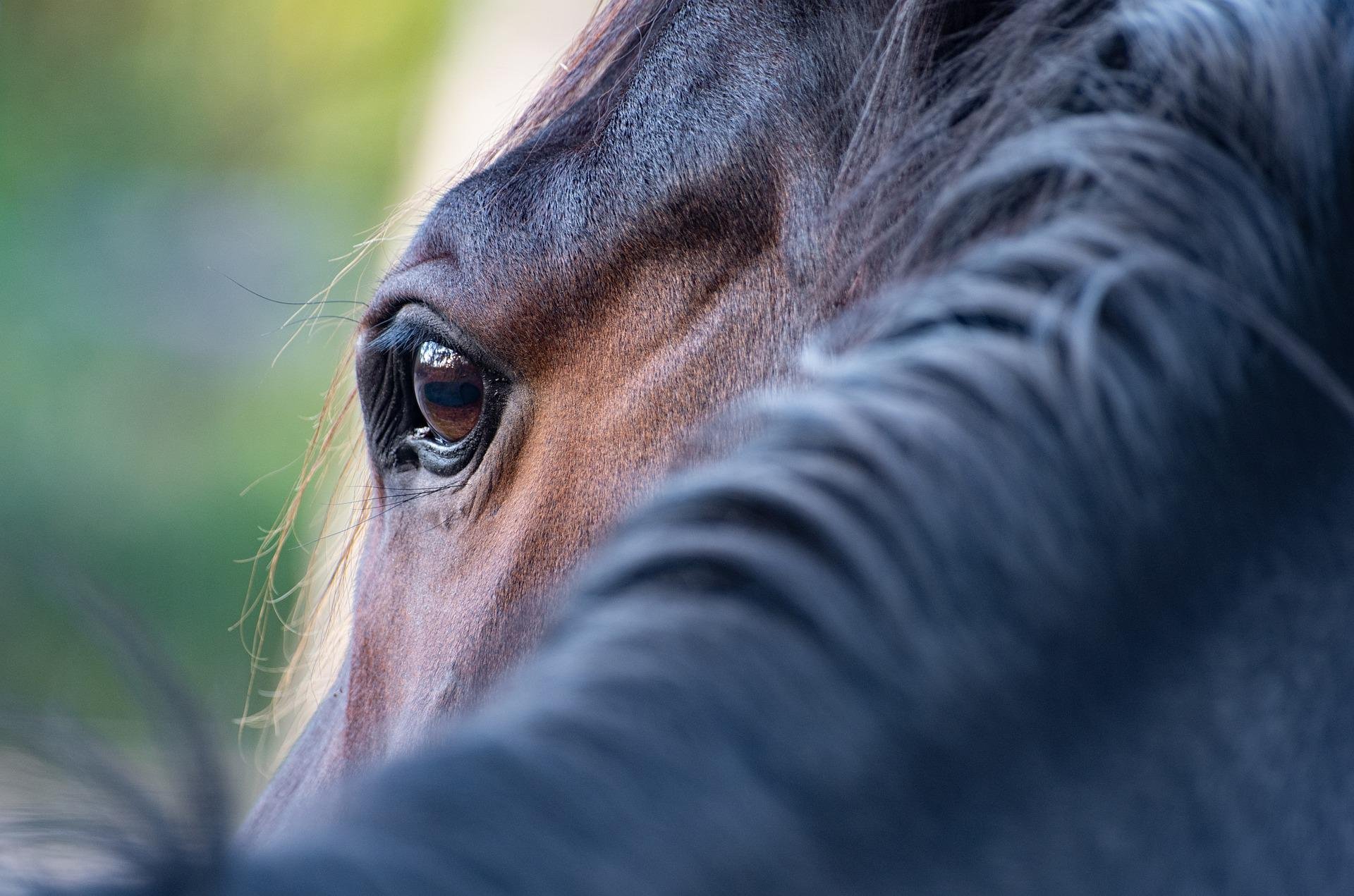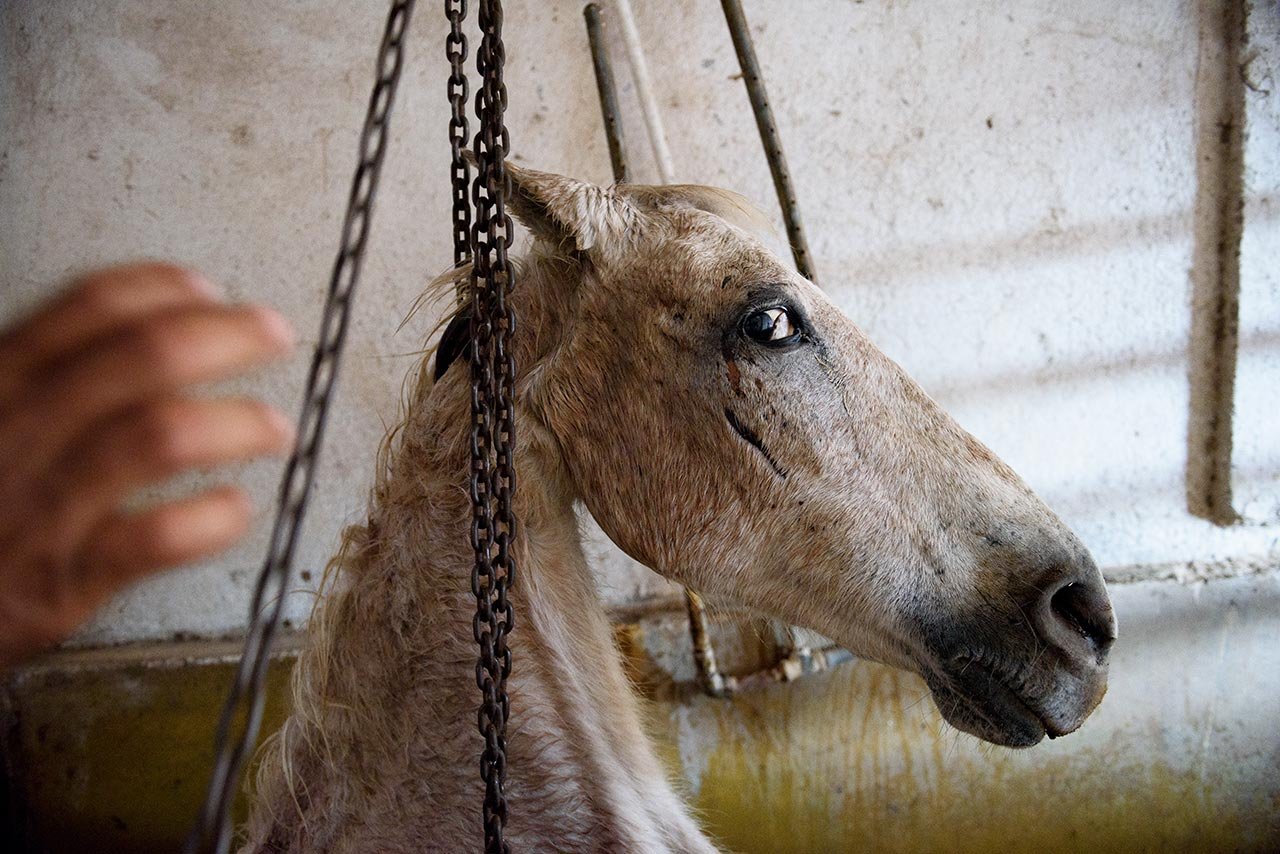Petition Update: Anti-Horse Slaughter Bill Advances through Subcommittee Hearing
While the slaughter of horses for human consumption in America was banned in 2007, over the last five years, it is estimated that around 288,000 horses have been transported to slaughterhouses across state lines. The SAFE Act is a solution to closing the legal loopholes that enable this.
Federal legislation that would permanently ban horse slaughter in the United States and end the export of American horses for slaughter abroad has advanced through a U.S. House Subcommittee within the Energy and Commerce Committee. This brings the bill one step closer to passing in the U.S. House and Senate.
Although the U.S. banned the slaughter of horses for human consumption back in 2007, an estimated 288,000 horses have been sent from America to abattoirs in Mexico and Canada over the last five years.
Credit: Tras Los Muros
This is possible due to a legal loophole that enables ‘kill-buyers’ to purchase horses and export them to slaughterhouses abroad without any repercussions. Kill-buyers frequent horse auctions, where they often outbid re-homing groups and charities, while also posing as genuine adopters when owners can no longer look after them.
Of the 23,431 American horses shipped to Mexican and Canadian slaughterhouses last year, an unknown number of them were once-federally protected wild horses and burros. Wild equines are at risk of being sold to slaughter after being captured and removed from their natural habitat by the Bureau of Land Management (BLM) and U.S. Forest Service (USFS).
While Congress has repeatedly barred BLM and USFS from selling these animals without slaughter restrictions, wild horses and burros lose their federal protections and are no longer tracked by the government when bought or adopted.
More than 90 percent of horses – domestic and wild – sent across state lines to slaughter are in good condition, according to a U.S. Department of Agriculture study.
Credit: AWHC
The anti-slaughter bill, Save America's Forgotten Equines (SAFE) Act, H.R. 3355, would permanently ban the transport of horses bound for slaughterhouses across state lines, essentially closing this legal loophole.
The bill contains a permanent defunding of inspections of domestic horse slaughter plants, which would prevent them from ever reopening on U.S. soil.
"More than 1.6 million American horses — including an unknown number who once roamed freely on our public lands – have been shipped to foreign slaughterhouses since the last such plant in the United States closed in 2007," said Neda DeMayo, president of Return to Freedom (RTF), a national nonprofit wild horse and burro advocacy organization. "Wild horses that once roamed freely on our public lands, pets, racehorses, workhorses — no American horse deserves to be shipped to an inhumane death in a foreign slaughterhouse.
"The national effort to end this practice began in Congress 21 years ago, so we call on everyone to join in ending this once and for all. Horse slaughter is wholly un-American and needs to end with the passage of the bipartisan SAFE Act."
Alongside the SAFE Act, the subcommittee passed the Prevent All Soring Tactics (PAST) Act, H.R. 5441. In the cruel practice of horse soring, chemicals and devices are used to inflict pain on show horses to force an exaggerated, high-stepping gait often referred to as the "Big Lick," according to ASPCA.
As with the SAFE Act, the PAST Act aims to close loopholes that allow soring to continue despite being banned decades previously.
“Horse lovers and advocates have been seeking to hasten the day when we'd give horses a measure of justice on these issues,” said Keith Dane, senior director on equine protection for the Humane Society of the United States (HSUS). “It's hard to imagine any greater betrayal of horses than slaughter and soring, and there could be no simpler solution than to ban them outright, no compromise.”
“If average Americans of any persuasion could vote on it, these cruelties would have long since disappeared. Neither one is worthy of a humane nation, and that should seal the deal with the 117th Congress, which we hope will pass these two measures immediately,” said Tracie Letterman, vice president of federal affairs at the Humane Society Legislative Fund (HSLF).
The SAFE Act currently has 218 sponsors, while the PAST Act has 258 and already won House approval by a vote of 333-96 in 2019, according to HSUS.
What Can You Do?
The Species Unite community has been ramping up support for the Senate version of the bill by coming together to urge the Senate Judiciary Committee to pass the SAFE Act, with more than 11,000 of you speaking out.
And thank you to the Species Unite community for reaching out to congressional representatives asking them to support the SAFE Act. By joining together and speaking out, we can create real change for animals.
We Have A Favor To Ask…
Species Unite amplifies well-researched solutions to some of the most abusive animal industries operating today.
At this crucial moment, with worldwide momentum for change building, it’s vital we share these animal-free solutions with the world - and we need your help.
We’re a nonprofit, and so to keep sharing these solutions, we’re relying on you - with your support, we can continue our essential work in growing a powerful community of animal advocates this year.
More stories:
Species Unite
A collection of stories of those who fight the good fight on behalf of animals.






A new study has revealed a landmark process that can now create bigger pieces of whole meat - without needing to farm an animal.